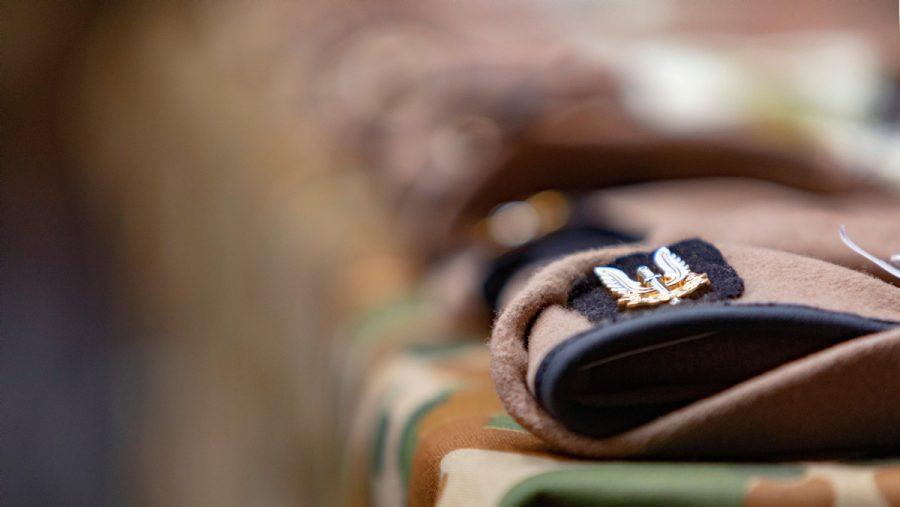Defending those we send to protect us
Posted By John Powers on September 27, 2019 @ 12:04

A Few Good Men is a fictional film about two marines on trial for murder while serving on the US Marine Corps base at Guantanamo Bay, Cuba. The most celebrated exchange in the film occurs in the courtroom between Jack Nicholson, portraying a steely-eyed, curmudgeonly marines colonel who commands the base, and Tom Cruise, a highly educated, social elite navy lieutenant serving as the defence counsel.
In the process of Cruise’s condescending cross-examination, Nicholson asserts, quite explosively, that civilians, politicians and many in the military ‘can’t handle the truth’ about what occurs in the horror and ambiguity of direct combat. He laments, with great anguish, that society wants and needs marines ‘on that wall’. Yet, those sending them to the wall don’t want to know the details about how they go about protecting the freedoms of those they defend.
Albeit a fictional depiction, Nicholson’s impassioned diatribe is not far from the truth. Most don’t want to know what happens on that wall. Combat is terrifying. It is horridly dreadful. And although there’s an international code that describes lawful and unlawful actions among nations and their service members, the fog of war is truly that—murkiness, especially when those you’re fighting don’t abide by the laws of warfare or acknowledge the norms of civilised societies, as witnessed repeatedly in Afghanistan and Iraq.
The impression has gained ground that some members of the Special Air Service Regiment (SASR) are an unregulated band of brigands, not adhering to civil laws, or to the laws of warfare. Nothing could be further from the truth.
As a retired allied officer, I have served with the men and women of the regiment since the 1990s, including stints in Afghanistan and Iraq. I know they abide by the laws of warfare and the civil laws of Australia—be it in garrison or while deployed. Yet, like the society they are entrusted to protect, there are those that slip through the selection process, join their ranks, and don’t embrace the credo and trust charged to them. It is not a phenomenon unique to Australia. All nations deal with reprobates within their ranks.
The impetus in 2015, for then major general Jeff Sengelman, to investigate the conduct and standards of the SASR was not driven solely by people outside the regiment. It was also driven by concerns raised from within the SASR’s own ranks about the behaviour of a very small number among them. This was seen by these professional diggers as intolerable. Thus, we are in the midst of a comprehensive investigation that is slowly releasing details of potentially unlawful actions, by a very few, within the SASR.
The conundrum facing the regiment, like special forces from many nations around the world, is that these highly trained men and women operate in a secretive world. It is a world where their names and missions never make the back page, let alone the front page of our newspapers when there is success. Yet, it’s there in headlines when there are questions about outcomes and behaviour.
Australian society is accustomed to the SASR being a beacon for the nation. Aussies want those who wear the tan beret on that wall. Their experiences, maturity and earned trust are why the government calls on them time and time again to do the hard yards. It’s why allied nations feel more secure when the SASR is part of the coalition. It’s a veneration the SASR has earned through blood, sweat, toil and lost lives through many conflicts since the beginning of the 20th century and the dawn of the ANZACs.
The members of the regiment will be the first to acknowledge that theirs is a legacy forged from the standards and traditions of the whole Australian Army, since no digger in the SASR enters directly into its ranks. The regiment embraces its responsibility to represent not just the army and the Australian Defence Force, but the people and values of Australia when its members are on that wall.
The SASR’s mettle will be tested as these revelations of potential misconduct are exposed. The rogues who performed these acts will be discovered and dealt with according to the law. The actions of a few should not cause Australians to feel their special operation forces are unworthy of their trust and respect. Transparency and accountability are what the diggers of the SASR want. That is what the ADF’s leadership wants. More importantly, that’s what the Australian people demand—the affirmation of what is right and what is wrong according to the law, be it on the part of soldier, public servant or private citizen.
It’s the rule of law that distinguishes us from those we fought in Afghanistan and Iraq. The legacy of the soldiers of the SASR remains sound, despite this drama, because at the end of the day they are the ones Australians want on that wall.
Article printed from The Strategist: https://aspistrategist.ru
URL to article: /defending-those-we-send-to-protect-us/
Click here to print.